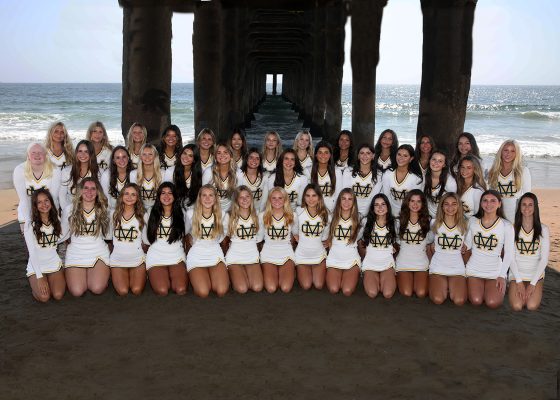by Paul Teetor
The next time you’re watching an NBA game and a gambling company like DraftKings or FanDuel invites you to bet on a 3-game parlay or the odds of Player x playing more – or less — than 30 minutes, don’t take them up on it.
Don’t take them up on it even if the offer comes with a promise of $200 in free bets — if your first parlay bet loses — just for placing that initial bet. It’s a sweetener that is often offered to close the deal and entice you into becoming a sports gambler.
It’s similar to the old drug dealer’s seductive offer: try the first one for free. If you like it, then you have to pay for the next one.
Why not take their offer?
Why shouldn’t you exercise your God-given right to throw your money away? After all, you’re smarter than the other slicksters who wear backward ball caps, brag about how much money they’re making, and lose sports bet after sports bet.
Why not take them up on that sweetheart offer?
Well, to begin with, it’s a sucker bet. The odds of picking all the winners in a three, four, five or even six game parlay bet are extremely low. The payoff is huge, but that’s only because the winners are so rare.
And prop bets – like how many minutes a player will play, who will score the next basket, which team will shoot the most three pointers, etc. – are even bigger sucker bets. For every winner there’s five losers.
Big picture: the house – or in this case, the gambling company — is going to win almost every time.
But now there’s another reason why you shouldn’t take them up on the offer: you can no longer trust that the games are on the level.
The brave new world of sports betting – in which pro leagues like the NBA and NFL have partnered up with outfits like DraftKings and FanDuel to promote exotic bets and create new gamblers – sustained a body blow this week when the NBA banished Toronto Raptors center Jontay Porter FOR LIFE.
The 24-year-old journeyman – the younger brother of Denver Nuggets star Michael Porter Jr. — will never again be able to play in the NBA because he bet on NBA games. But he did more than that: he bet on his own team to lose. And he even bet on how many minutes he would play in a game, a so-called “prop bet.”
And then he played so poorly in that game, claiming that he was sick, that the coach refused to put him back in. And since he had bet the under on how many minutes he would play, it was an easy win – for him, not his team. They lost that game.
That scenario is exactly what every sports franchise owner, every team executive and every league commissioner stays up nights worrying about: a player betting against his own team.
Even the notorious Pete Rose, the Cincinnati Reds star-turned-manager, didn’t have the audacity to do that – and he was still banned from baseball for life after admitting he had bet on games involving teams other than his own.
That is why there was such a huge sigh of relief coming from Dodger Stadium last week when it was revealed that their $700 million star, Shohei Ohtani, had not bet on sports, either for or against his team.
If he had, he very well could have been banned from the game for life, or at least from Major League Baseball. There’s a huge sign in every MLB clubhouse warning that it is against MLB rules to bet on baseball.
Period. No exceptions.
But his interpreter, Eppie Mizuhara, had bet on sports and lost more than $16 million, which he stole from Ohtani to keep the bookie off his back. The next time you read his name will be when he strikes a plea bargain and heads off to prison for at least five years.
Last week All Ball warned that sports was heading towards a gambling-related catastrophe, and had dodged a bullet when Ohtani was vindicated.
Now the Jontay Porter case has taken us one step closer to that gambling catastrophe.
His lifetime ban should have been a week-long story because it was the first such ban in the NBA’s modern era.
But because ESPN, the so-called “world wide leader” in sports journalism, is now all-in on sports betting, it was essentially a one-day story. ESPN now has several daily shows devoted to sports gambling, with “experts” touting their picks of the day. Presumably, millions of fans follow these shows and place their bets accordingly.
The other reason it was only a one-day story: Jontay Porter is not a “name” player, not a star. He’s just another guy who fills out the end of the roster and makes NBA chump change – less than $500,000 – and thus would be tempted to bet on games and eventually to begin tailoring his own performance to match his bets.
It was not surprising that the NBA came down so hard on him. They wanted to send a message to other players who might be tempted to place bets on their own games or other games: don’t do it.
Indeed, you may have missed the story completely if you don’t follow sports closely. But that’s just the way NBA commissioner Adam Silver wants it. While he proclaimed that nothing is more important to him than the integrity of NBA games, he opened the door to teams embracing sports betting once the Supreme Court issued a ruling in 2018 that removed most restrictions on it.
California is one of 12 states where it is still not legal to be on sports, but there’s a giant loophole which is easily exploited: it’s legal to use your phone to place sports bets as long as the gambling company you place the bet with – like FanDuel or DraftKings – is based out of state.
It’s become a $200 billion industry, and pro leagues – eagerly partnering with the gambling companies — are feeding at the trough.
What are the odds that a gambling scandal – involving a big name, not a no name like Jontay Porter — is right around the corner?
High and getting higher all the time.
Lakers: Been there, done that
It was a good news/bad news kind of week for the Lakers and their fans.
The good news: they won an exciting 110-106 play-in tournament game over the New Orleans Pelicans to make it into the real playoffs. LeBron played like the LeBron of old – grabbing rebounds, sprinting full court and bull-rushing the basket for easy hoops. And D’Angelo Russell hit the biggest shot of the game – a three-pointer from the right corner – with less than a minute left. It was a vintage performance from LeBron and his supporting cast.
The bad news: by winning the seventh seed, their “reward” was facing the second-seeded Denver Nuggets in the first round.
That’s the same Denver Nuggets team that won the NBA title a year ago.
The same Denver Nuggets team that has the NBA’s best player in 7-footer Nicola Jokic, whose lumpy body and lack of hops makes him look like an over-the-hill giant at the local YMCA beating up on high school kids.
But don’t be deceived: he shoots like Larry Bird, passes like Magic Johnson and rebounds like Kevin Garnett.
In other words, he’s the complete package.
Oh, and one other piece of bad news: not only did the Nuggets sweep the Lakers in last season’s Western Conference Finals, but they won all four games between the two teams this year.
And the pattern was the same in all eight games: LA often took an early lead as LeBron and Anthony Davis played well. But gradually, and usually in the second half, Denver’s depth – Jokic, All Star guard Jamal Murray, bruising forward Aaron Gordon and 6-foot-10 sharpshooter Michael Porter Jr. comprise the league’s best core four – begins to wear down the 39-year-old LeBron and the 31-year-old AD.
Saturday night, in game one of the series, the pattern repeated itself once again. Right from the start the Lakers rushed out to a double-digit lead and silenced the raucous Denver home audience.
But right on schedule, late in the second quarter, Denver went on an 11-0 run to tie the game. LeBron hit a 35-shot at the halftime buzzer to restore the Lakers lead to three points, but it felt like a very tenuous lead.
Sure enough, fatigue – mental and physical – set in and soon the Nuggets had a double-digit lead of their own. In the end, the score – 114-103 – was not as important as the psychological dynamic at work: the Nuggets own the Lakers, and there’s nothing that LeBron, AD, coach Darvin Ham, General Manager Rob Pelinka or owner Jeanne Buss can do about it.
It got even worse in a heart-breaking loss Monday night: the Lakers were up by 20 in the middle of the third quarter, then watched helplessly as the lead evaporated and Denver’s Jamal Murray won it, 101-99, on a 15-foot buzzer-beating jumper from the right side.
The Lakers fate was sealed when they won the 7th seed and had to match up with Denver in the first round. They could have beaten – or certainly been competitive with – any other team in the western conference, including the top-seeded Oklahoma City Thunder, third seeded Minnesota Timberwolves, fourth seeded LA Clippers or fifth seeded Dallas Mavericks.
But not the Nuggets.
Game three is Thursday night here in LA. Let’s hope the Lakers have enough pride to come out determined to prevent a four-game sweep yet again. ER
Contact: teetor.paul@gmail.com











